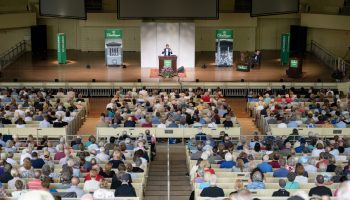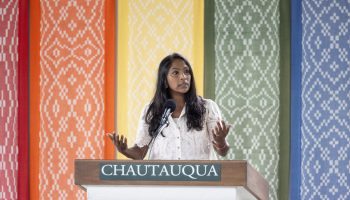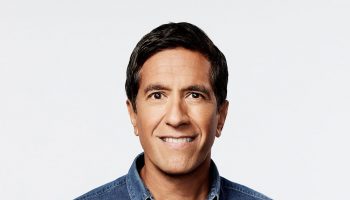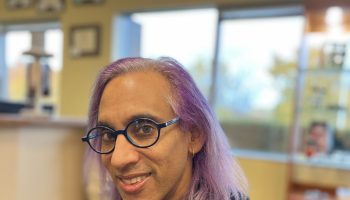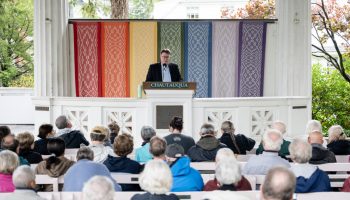Growing up on a rain-swept Skagit Valley strawberry farm in northwestern Washington, Mary Mapes shared her mother’s and four sisters’ penchant for current events, reading and writing, and would soon integrate them into an accomplished career in U.S. television journalism.
At 3 p.m. July 23 in the Hall of Philosophy, Mapes will give the Contemporary Issues Forum’s second Barbara Vackar Lecture, which is titled, “Who Has the Privilege of Power Now?”
That annual lectureship was established by Cathy Bonner, chair of the Chautauqua Foundation, in honor of her Texas colleague and friend, Barbara Ellison Vackar. Among her many accomplishments, Vackar was a special assistant to former President Jimmy Carter and served as president of the Chautauqua Women’s Club from 2005 to 2010.
“When I was 6, I refused to go to Sunday school,” said Mapes, author of Truth and Duty: The Press, the President, and the Privilege of Power. “I wanted to watch ‘Meet the Press.’ ”
Fast-forward to her young adulthood and head 75 miles south to Seattle, which for Mapes was “the center of the sophisticated universe.” She focused on communications and political science at the University of Washington during the 1970s, and was quickly promoted from her full-time job at KIRO-TV carrying heavy equipment to prioritizing and producing the news.
Moving to Dallas, Texas, in 1989, where she said she and her journalist husband, Mark Wrolstad, thought they would be based for just a year, Mapes began her nearly 16-year tenure at CBS News by traveling and reporting throughout the South, on the ground in fair weather and hurricanes. She said she came to love Texas: “There’s no better place to live.”
At CBS, Mapes worked mainly with Dan Rather. She became a principal producer for the “CBS Evening News with Dan Rather,” and in 1999 for the primetime program “60 Minutes II” (also known as “60 Minutes Wednesdays” and “60 Minutes”). Riots and presidential campaigns were well within her bailiwick.
Mapes said that the role of producing television news depends on the context.
“Stacking stories in order of importance and setting the tone,” she said, are two key responsibilities at the local level. At the network level, producers are part of a team, including a news reporter, sound person and cameraperson.
At “60 Minutes II,” Mapes oversaw a team, made decisions about stories and their importance, and brought in the crew of people needed to turn each story into an episode.
“We always used to joke,” she said, “that we got all of the blame and none of the credit; like being a woman.”
Mapes said she had always wanted to travel and see the world, and “to have a hand in how other Americans saw the world.”
She covered the first Gulf War, and the wars in Afghanistan and Iraq, but also “every military conflict around the world from 1989 to 2005.”
“Those travels were like vacations from hell, where you go to all those places no one else wants to, and I, of course, wanted to,” she said.
In 2005, Mapes won broadcast journalism’s top investigative award, a Peabody, for producing the graphic story about the abuse and torture of Abu Ghraib prisoners by U.S. soldiers stationed in Iraq.
Her journalism has been recognized with several other honors, including multiple Emmys, Gracies and Society of Professional Journalists (SPJ) awards.
It was Mapes who broke the story of Essie Mae Washington-Williams, the secret, biracial daughter and eldest child of lifelong segregationist Strom Thurmond, the vocal U.S. senator, South Carolina governor, attorney and World War II veteran.
Dan Rather interviewed Washington for a poignant episode of “60 Minutes II,” which aired in March 2004 and gives insight into interracial communication and wealth and power disparity during most of the 20th century.
“I found her in L.A.,” Mapes said. “I had heard the story for years. African-Americans knew it, but most reporters dismissed it. I found her name and property records. … It’s such a uniquely American and important story, and probably my favorite.”
More than 25 years of stellar television news journalism did not shield Mapes, or Rather and two other senior CBS staff, from losing their jobs after breaking a controversial story on “60 Minutes” six months later.
During President George W. Bush’s campaign for relection and before his decision to commit additional troops to Iraq, they presented documents that called into question the quality and extent of his service in and his dedication to the Texas Air National Guard during the Vietnam War.
“You work really hard in a male-dominated industry and never miss a deadline,” Mapes said. “You’re at the top of your game. Then there’s a political attack. Geez, I thought I’d done everything right.”
Mapes wrote about “Memogate” in Truth and Duty: The Press, the President, and the Privilege of Power, the title of the first edition of her book, initially published in 2005.
After Sony Pictures turned writer-director James Vanderbilt’s screenplay into the feature film “Truth,” released a decade later, Mapes’ book was republished with a slightly different title — “and Duty” was cut — and a preface written last summer. In the film, Cate Blanchett stars as Mapes, and Robert Redford is Rather.
According to Mapes, who has been writing for magazines and is scripting the screenplay for a fictional TV show, her talk on Saturday afternoon about the privilege of power will be completely apolitical.
“Journalism is always going to be my first love, first crush and my first way of expressing myself,” she said.
But she’s concerned about the current state of journalism.
“We need to free the press,” she said. “We don’t have a free press; we have a very expensive press. Anything we say or do is looked at through a political prism, which is really dangerous for our discourse. I live in Texas and have friends who are Republicans, and my mother was a Republican. We can all agree that we need better reporting.”

